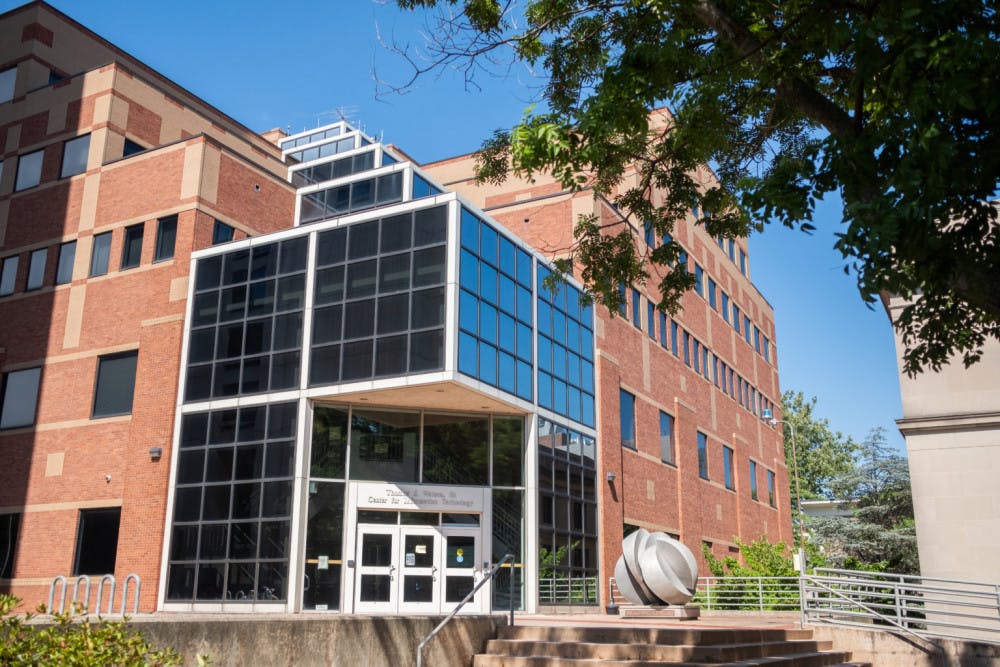The University’s Advisory Committee on University Resources Management unanimously voted against recommending the removal of Thomas J. Watson Sr.’s name from the Thomas J. Watson Sr. Center for Information Technology, according to a July 30 ACURM report. The report was made available Nov. 18 on the committee’s webpage.
President Christina Paxson P’19 expressed her support for the recommendation in an Oct. 15 response to ACURM.
ACURM’s decision followed a November 2020 resolution from the Undergraduate Council of Students which proposed the renaming of the CIT due to Watson’s alleged connections with Nazi Germany, The Herald previously reported. UCS argued in its resolution that “Watson Senior, as president of International Business Machines (IBM), maintained deep business relationships with Nazi Germany.”
The UCS resolution passed with 87.5% of UCS in favor in November 2020 and was sent to ACURM, a University body that is charged with making recommendations to Paxson on ethical expenditures and investments.
In its resolution and subsequent petition and presentation, UCS presented evidence from historian Edwin Black’s 2001 book “IBM and the Holocaust” alongside journal and newspaper articles. In the report, ACURM stated that UCS’s claim was that Watson “aided the Nazi regime in their goal of the extermination of European Jews. Whether through a desire for profit, or from innate antisemitism, Watson knowingly aided the Nazi regime in these goals and continued to do so throughout the 1930s until, and possibly beyond, the outbreak of war in 1941.”
ACURM wrote that UCS’s April 2021 presentation “was based less upon the sources used for the petition and focused more on the issue of complicity of U.S. firms in trading with Nazi Germany in the period in question.”
In its analysis, ACURM read Black’s book, read book reviews, consulted historians and spoke with other bodies who had investigated these claims.
ACURM acknowledged that many of Black’s claims referenced by UCS are “indisputable,” but decided that Watson’s trade with Germany prior to 1941 “does not prove that Watson himself was either ‘excessively greedy’ and thereby a special enabler of the Nazi regime, nor was himself in any way antisemitic.”
“Many other American companies were invested in Germany at the same time and many to a much higher degree,” ACURM added.
ACURM ultimately concluded that, contrary to the evidence UCS presented, there was “no direct evidence that Watson knew, especially prior to 1938, that Nazis were planning a Holocaust nor that he wanted to aid and abet them, nor took action to actively do so.”
ACURM also unanimously voted to propose alternatives to renaming the CIT, according to the report.
These alternatives include the establishment of an annual lecture on ethics in international business, placing a plaque on the outside of the CIT addressing “the ethical question of current day analysis of past business practices” and “the centrality of community harm to our concerns” and the formation of a committee to ensure that current and future names of campus buildings are associated with individuals “whose values and integrity are in line with those of the University.”
Paxson expressed her support for establishing an annual lecture in her letter, declining ACURM’s recommendations to install a plaque on the CIT or establish a new committee. The Office of the President will consult with faculty to determine the department or center to host this event.
Paxson also expressed her confidence in the University’s Gift Acceptance Policy and Naming and Renaming Policy.
“Should issues about gift acceptance or naming arise in the future, the University will adhere to the principles by which gifts are accepted that advance Brown’s mission and that guide decision-making in the extraordinary circumstance of considering whether to rename or remove a name,” Paxson wrote.





